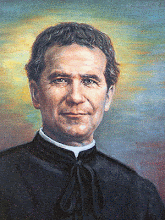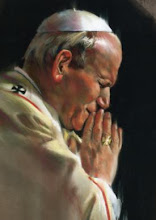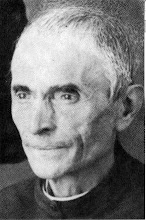Secular liberalism is at odds with Catholicism. The point seemed obvious to most people until the postwar period, when the thought took hold that an essentially harmonious relationship could be established that would draw on the American model. America, it seemed, was different from Europe with its long tradition of statism and anti-clericalism. It rejected an established church, but embraced religious freedom, an active and diverse civil society, and a limited and decentralized government that did not try to dominate culture and gave the Church the protection and freedom she needed to thrive.
The attempt to establish a harmonious relation with the liberal state has been less fruitful than hoped, and even in America has run into profound difficulties. Our government and other authoritative institutions have become more centralized and more concerned with remodeling all aspects of life, including the beliefs and attitudes of the people. We are becoming more like Europe, and to make matters worse the outlook of the governing classes on both sides of the Atlantic has moved in a direction radically opposed to both religion and natural law. Throughout the Western world, Catholics and Catholic institutions are increasingly required to conform to anti-Catholic norms, and in much of it you can be punished as a criminal for public assertion of Catholic moral doctrine.
The intolerance is aimed less at Catholicism in particular, although the Church is a highly-visible target, than any form of Christianity that does not reduce without remainder to progressive politics and private therapy. We are increasingly ruled by practical utopians who believe themselves comprehensively responsible for human relations, and their efforts leave no place for an independent and refractory organization like the Church that proposes a contrary vision that now counts as intrinsically antisocial and oppressive.
So where will the present situation lead if—as seems quite possible—our secular authorities continue on their present course? Will the blood of the martyrs once again be the seed of the Church, or will multiplying restrictions and disabilities wear down Catholic life until the Church all but disappears?
Many societies have been anti-Catholic. How effective their anti-Catholicism has been has depended on the nature of the society and its guiding principles. Roman society, for example, had nothing to propose that could fill the needs Christianity satisfied, and the Roman empire was more loosely organized and its activities more limited than modern states. As a result, Roman persecutions, however savage they might be, were mostly local, sporadic, and ineffectual. By the time the Romans saw a need for comprehensive enforcement of religious loyalty the Christians were too strong and the empire too divided for the policy to be effective.
Some of the Church’s more recent opponents have been more organized, focused, steady, and successful. The Muslims eliminated Catholicism from North Africa, the home of Cyprian and Augustine, and the Protestants did much the same over large stretches of Europe. They were able to do so because the governments they established had more comprehensive concerns than the Roman government did, they took the issue of religious unity more seriously, and they stood for principles that had the broad-based appeal and staying power needed to establish themselves at least somewhat durably among the people.
In the last century the most severe attacks were carried on by secular systems that functioned as religions but excluded transcendent truth and authority. The attacks were organized and focused to the point of fanaticism, and they often led to widespread martyrdom of clergy and ordinary believers, as with the radically anticlerical regimes in Mexico and Spain and the totalitarian regimes that ruled Nazi Germany, Soviet Russia, and their respective empires.
Those attacks were not enduringly effective because the regimes carrying them on were too much at odds with human nature and with the societies they dominated for their vision to endure. Thus, for example, religious belief has bounced back in Russia, and Christianity is making unprecedented advances in China. Both countries had been searching for some sort of guiding principle, and when communism failed Christianity stepped into the gap. (In regions like East Germany and the Czech Republic, where communism was imposed from outside on a society in which religion was already weak, Soviet domination does seem to have accelerated the loss of faith.)
It appears, then, that as a human matter suppression of Catholicism is likely to work if the system that carries it on endures, takes the effort seriously, and offers a reasonably appealing way of life that provides somewhat of a substitute for what is suppressed.
So what does that mean in the case of secular liberalism, assuming it remains as ideological a system as it now seems? It has been enormously successful as a practical matter, and the way of life it offers evidently appeals to a great many people. Further, its opposition to Catholicism has become much more serious and active during the post-60s period. The result is that it has been very successful in changing religious views and weakening Church authority among the laity and even among many clergy and religious.
Given all that, the obvious question as to the future of Catholicism in the West, humanly speaking, is how much staying power secular liberalism will have, and whether it will maintain its appeal to ordinary people. Luckily for Catholics (and for humanity in general), those requirements bring weak points of the liberal system into focus. Secular liberalism makes maximum equal satisfaction its highest good. That principle is what gives it popular appeal, but it means ever-greater demands on public resources, since people require more and more to be satisfied, and it also means ever-less discipline, loyalty, and public spirit to support the system, since it undermines ideals of love and sacrifice.
Secular liberalism lacks a grounded principle of authority, and its aspiration to universal satisfaction makes it adverse to widespread use of threats and force. As a result, its basic method for maintaining control is a system of payoffs, propaganda, and ever-more comprehensive regulation. That method has mostly been rather successful. Material benefits have been funded through the extraordinary productivity of capitalist economies in a technological age, propaganda facilitated by alliance with the mass media and the expertise and training industry (otherwise known as the educational system), and regulation made effective by a comparatively high degree of bureaucratic discipline and efficiency.
None of those resources are infinite or everlasting. Organizational discipline and efficiency don’t sit well with an emphasis on equal satisfaction, so they are unlikely to be maintained. Also, it is becoming harder and harder to fund public programs or provide individuals with satisfactory employment, so much so that public finance has been reduced to an endless series of short-term expedients that everyone knows cannot go on forever. When the money runs out, people start feeling real economic pressure, and the government is unable and seems unwilling to do anything for them, will they keep on believing what they are told? Why should they, when the basis of what they have been told is that they have a right to get what they want?





















